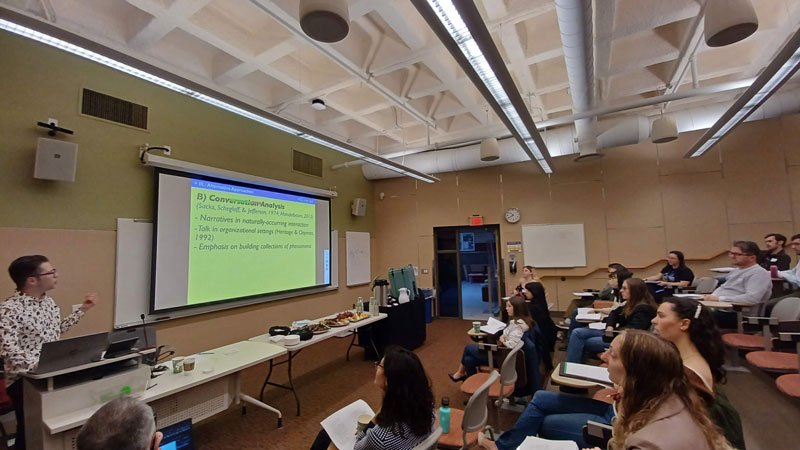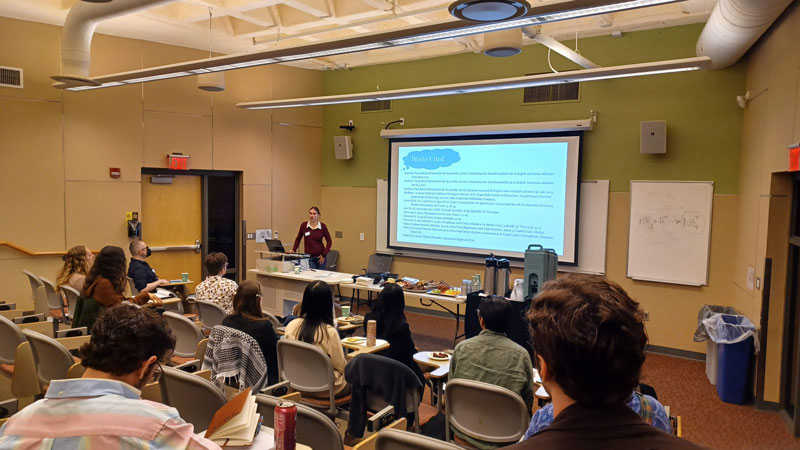Student Opportunities
Student scholarships
The Linguistics Program makes some of its funds available directly to students in the form of scholarships. These funds allow recipients to attend conferences or other events that contribute to their professional and academic development. Examples include the scholarships to attend the 2024 and 2025 editions of the LSA (Linguistic Society of America) conferences in New York City and Philadelphia (some pics below). All linguistics minors and majors are invited to apply!
Timing: Throughout the year.
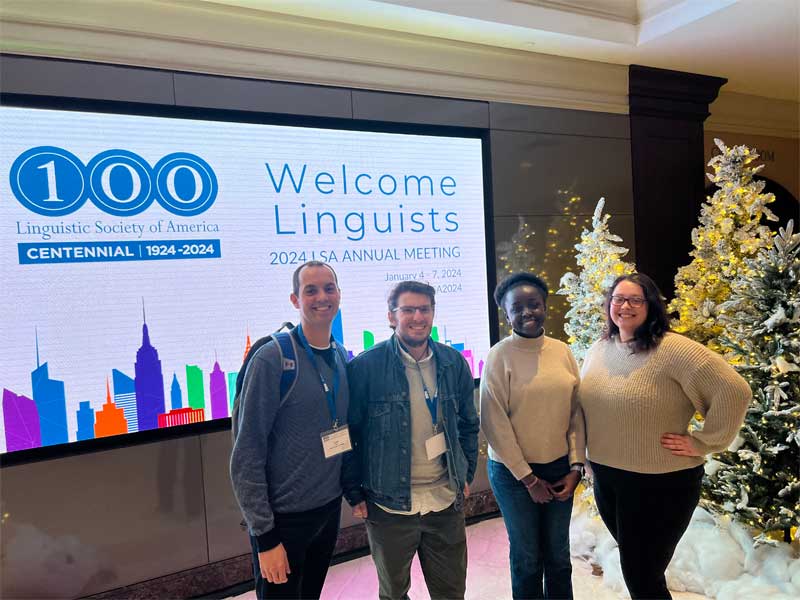
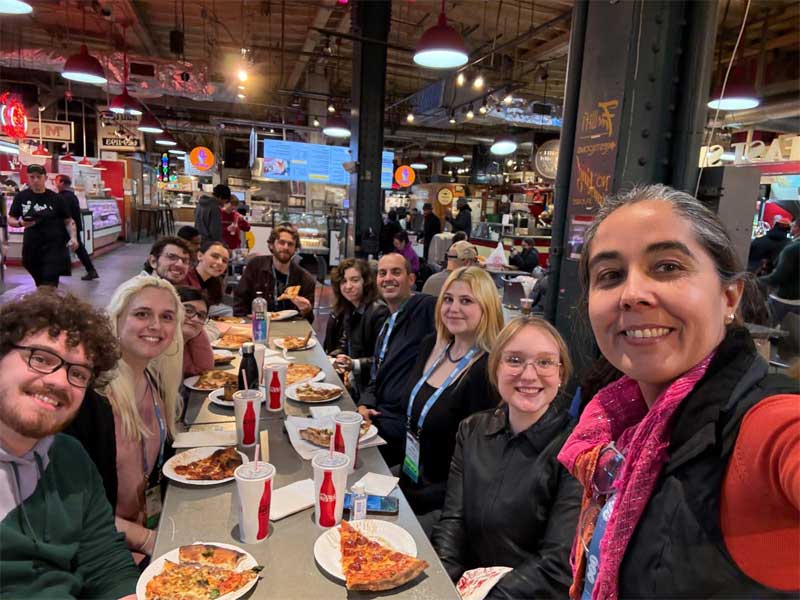
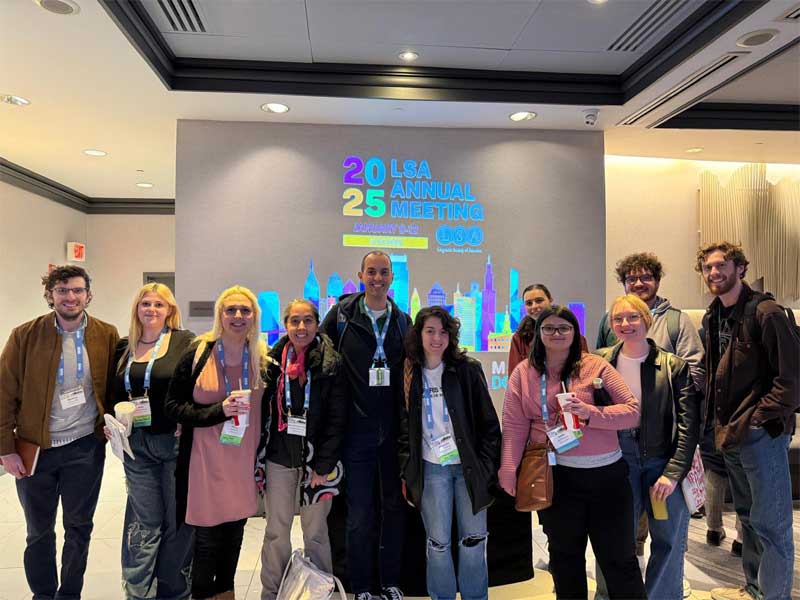
WCU Linguistics Society
WCU’s own student linguistics club, the Linguistics Society organizes events, film viewing, games, and other fun linguistics-focused activities! For information, contact the Society faculty advisor, Dr. Raclaw.
Timing: Throughout the year.
Spring Speaker Series
Join us for presentations on the latest research in linguistics by scholars from around the country and abroad! Organized yearly since 2016 and open to the public. Below are the presenters at our latest Spring 2025 edition
Timing: Spring semester.
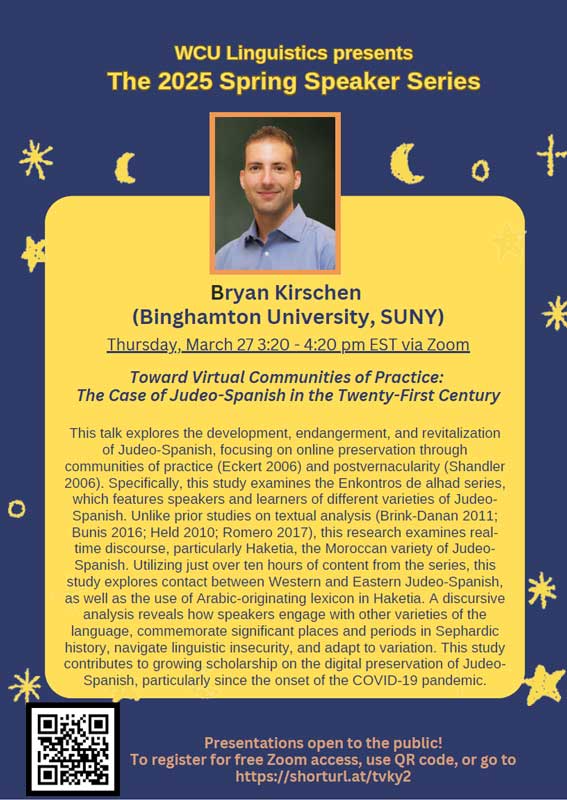
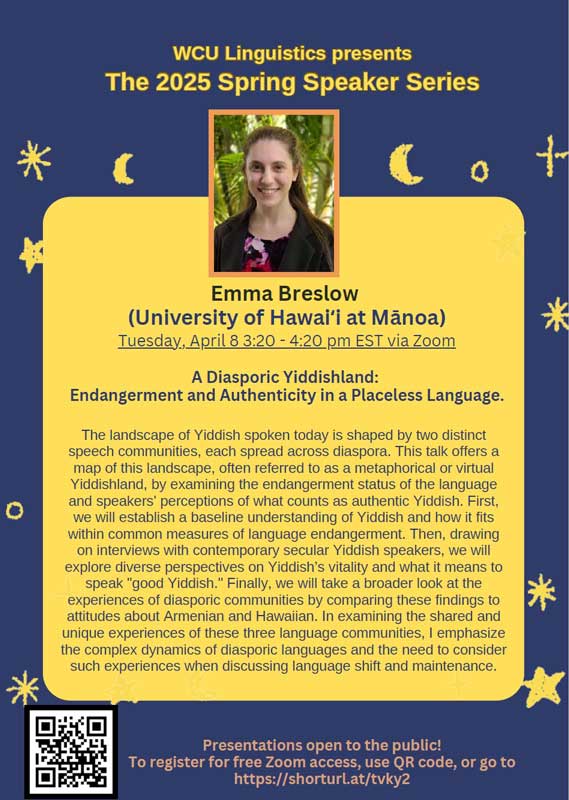
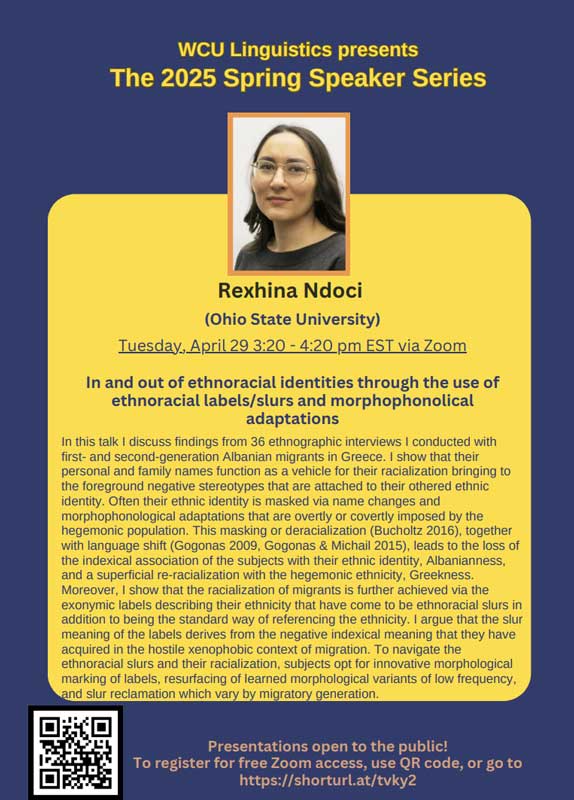
Linguistics Student Research Conference
Organized in the spring by WCU Linguistics Students, this conference brings together undergraduate and graduate students from the Philadelphia region – a great venue to present your ongoing research and get ideas for future research directions in a fun, relaxed atmosphere! Keep your eyes peeled for a call for papers in the spring (usually around February-March), with the conference being held before the end of the spring semester.
Timing: April
